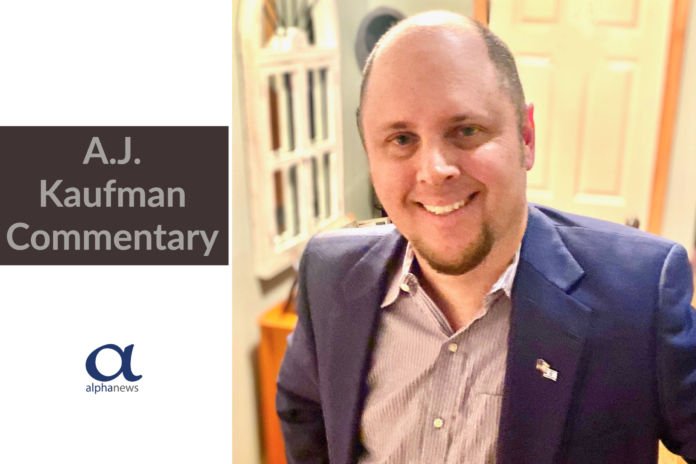This year marks the 75th anniversary of the liberation of Auschwitz and May 8 marked World War II’s conclusion in Europe.
May is also Jewish American Heritage Month (JAMH). Jews are only religious group in our country with a month dedicated to their history, yet few within media, government, and even the Jewish community give JAHM much thought.
President George W. Bush first proclaimed May as JAHM in 2006 to recognize Jewish contributions to American culture. The choice to commemorate these achievements came on the heels of celebrating the 350th anniversary of initial Jewish migration to North America.
Israeli Independence Day and Holocaust Remembrance Day also fall this time of year, set in accordance with the Hebrew calendar. The latter is observed to commemorate the six million Jews who perished in the Holocaust, or Shoah, at the hands of Nazi Germany.
Some Minnesota Jewish history may help, because while many have added to the state’s rich cultural heritage, unfortunately some people have detracted.
The first Jewish community was established in St. Paul in the 1840s and by 1856 they formed Mount Zion Hebrew Congregation. Minneapolis‘ first synagogue was founded in 1878. These Jewish pioneers mostly arrived from Central Europe and the eastern and southern United States.
By the 1920s, the Jewish population of Duluth was nearly 3,500. Many eventually moved to the Iron Range and worked retail trades across the region’s mining towns.
A third wave of Jewish immigration to Minnesota was permitted about 50 years ago from the Soviet Union. By 2000, Jews from the former USSR made up approximately 10 percent of Minnesota’s Jewish population. There are now nearly 50,000 Jews in the Land of 10,000 Lakes, with more than 80 percent residing in the Twin Cities.
Jews began holding political office in 1961 when Arthur Naftalin was elected Minneapolis mayor. Larry Cohen became St. Paul mayor a decade later. Berlin-born Rudy Boschwitz, who fled Germany as a child when Hitler took power, became the state’s first Jewish Senator in 1978. He was defeated by another Jew, Paul Wellstone, in 1990. Norm Coleman won the seat 12 years later then lost controversially to Al Franken in 2008 during an all-Jewish race.
A state where Jews make up less than 1% of the population had Jewish senators for four decades.
On the negative side, famed aviator and Minnesota native Charles Lindbergh repeatedly claimed Jews “controlled our motion pictures, our press, our radio, and our government” and were trying to draw America into World War II. He once described Hitler as having “far more character and vision than I thought.”
“Lindbergh’s anti-Semitism can be described as a benign unconscious bias rather than intentional malice,” Melissa Peterson, site manager at Charles Lindbergh Birthplace and Museum, told me. “He considered Jewish Americans as “other” people and non-American. While his public statements reflect this, he failed to make these same connections with Jewish people he considered close friends.”
Three years ago on Yom Kippur, St. Cloud police investigated a swastika painted on a local Junior High School.
Two Minnesota high school students in Nicollet recently shared a social media video titled “Me and the boys on the way to camp,” which photo shops them in a Nazi boxcar, happily skipping into Auschwitz.
And we’ve lost count of the anti-Jewish smears coming from Rep. Ilhan Omar. She ironically represents the most heavily-Jewish area of Minnesota, yet has made abhorrent comments on Israel, Jews and their “Benjamins” dominating U.S. policy. Omar also introduced anti-Semitic propaganda disguised as a resolution last year that thankfully didn’t garner support in a nation that overwhelmingly believes in the Jewish people’s right to a homeland.
Even in New York City, where over 1 million Jews reside, more than half the hate crimes reported last year were attacks on Jewish people.
Perhaps this is because, as Brandeis University Jewish History Professor Jonathan Sarna found, most school textbooks only mention Jews when they are murdered during the Holocaust.
He believes JAHM “does not have the buy-in that one wishes it had” and while many Jewish educators haven’t been convinced to take part in it, “We are better off having such a month than not having it.”
William Daroff, one of heritage month’s founders, believes it has an impact, saying, “Every year we’re a little bit better off in being clear to the American public that we are an essential part of the mosaic that makes up America. Given the increase in anti-Semitism, it is vitally important that Americans understand the crucial role Jews have played in our country’s history. The best way to combat hatred is through education—and educating the American people through JAHM is an excellent anecdote to ignorance.”
Educating the general public — children, teachers and politicians — clearly remains crucial as ever.
A.J. Kaufman
A.J. Kaufman is an Alpha News columnist. His work has appeared in the Baltimore Sun, Florida Sun-Sentinel, Indianapolis Star, Israel National News, Orange County Register, St. Cloud Times, Star-Tribune, and across AIM Media Midwest and the Internet. Kaufman previously worked as a school teacher and military historian.

















